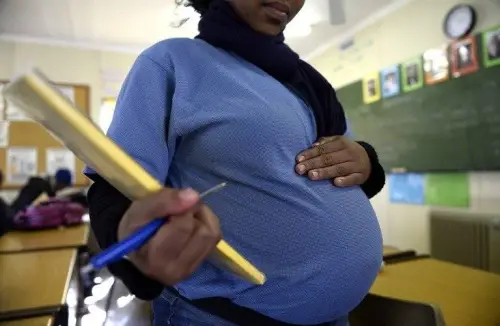
“The future of any nation lies in the hands of its youth.” These words from Nelson Mandela resonate deeply in Somaliland, where teenage pregnancies have become a pressing concern. According to recent data, the teenage pregnancy and motherhood rate has reached alarming levels, presenting a significant challenge that requires urgent attention. As we delve into this issue, it is evident that the root causes are multifaceted and complex, necessitating a comprehensive approach to tackle them head-on.
Lack of education, particularly in sexual and reproductive health, emerges as a significant driver of teenage pregnancies in Somaliland. Education acts as a powerful tool, empowering individuals with the knowledge to make informed decisions about their bodies and relationships. Studies have shown that education attainment strongly influences health behaviors and attitudes. For instance, teenage girls with little to no education are more likely to experience early motherhood compared to those with secondary or higher education.

Poverty is another critical factor fueling the prevalence of teenage pregnancies. Dishearteningly, teenagers from impoverished households are at a higher risk of experiencing teenage pregnancy and motherhood compared to their wealthier counterparts. Some girls find themselves forced into sexual relationships to meet financial needs or support their families, perpetuating a cycle of vulnerability and hardship.
Early initiation of sex further compounds the issue, and multiple factors contribute to this phenomenon. Peer pressure, the influence of media, drug and substance use, sexual coercion, poverty, and child marriages all play a role. When combined with a lack of adequate knowledge and skills to make informed decisions about sexuality, young people find themselves grappling with the consequences of their actions.
Child marriages, too, expose girls to the risks of teenage pregnancy, depriving them of the opportunity to fulfill their potential and trapping them in a cycle of poverty and dependence. These early marriages perpetuate a cycle of early motherhood that hinders girls’ education and personal development.
Moreover, teenage pregnancies often occur within the context of human rights violations, such as coerced sex or sexual abuse. These violations not only harm the physical and mental well-being of young girls but also deprive them of the chance to pursue their dreams and aspirations.
Another disconcerting concern is the prevalence of practices like “disco matangas” in some regions of Somaliland. These events inadvertently expose young girls and boys to sexual activities, significantly increasing their vulnerability to teenage pregnancy and other health risks. Addressing harmful cultural practices and creating safe spaces for our youth to thrive is crucial in confronting this crisis.
Despite the challenges, there is hope. As a society, we can join hands to combat this crisis together. The Somaliland government must recognize the urgency of the issue and implement comprehensive initiatives. Providing young people with access to vital information through comprehensive sex education in schools can empower them to make responsible choices. Additionally, increasing access to family planning services can play a significant role in reducing the incidence of teenage pregnancies.
However, addressing teenage pregnancies is not solely the responsibility of the government. We must foster an environment where the youth feel empowered to take a stand against teenage pregnancies. Encouraging open conversations, breaking the silence surrounding sex and reproductive health, and promoting gender equality are crucial steps forward. Community-based organizations, schools, and parents must collaborate to create support systems that address the underlying causes and provide opportunities for growth and development.
Together, we can create a brighter future for Somaliland’s youth. By investing in education, we equip young people with the knowledge and skills to make informed decisions about their bodies, relationships, and futures. We must work towards eliminating the barriers that perpetuate poverty and inequality, ensuring that every young person has access to opportunities and resources that enable them to thrive.
Let us foster a society that nurtures and empowers our young girls, where their dreams are not shattered by early motherhood but are instead encouraged to soar to new heights. By promoting gender equality, we break down the societal norms and expectations that limit the potential of our girls, allowing them to become strong, independent women who contribute to the progress of our nation.
As a nation, we must stand united against teenage pregnancies, recognizing that they not only impact individual lives but also hinder the social and economic development of our country. Let us uplift and support young parents, providing them with the necessary resources and guidance to navigate the challenges they face. By embracing a compassionate and empathetic approach, we can ensure that every young person has an opportunity to fulfill their dreams, regardless of their circumstances.
In conclusion, confronting teenage pregnancies in Somaliland is a pressing concern that demands our immediate attention. By addressing the root causes, such as lack of education, poverty, early initiation of sex, child marriages, sexual abuse, and harmful cultural practices, we can pave the way for a brighter future. It is only through collective action, involving the government, communities, and individuals, that we can effectively combat this crisis and create an environment where our youth can thrive. Let us come together, with hope and empathy, to empower the next generation of Somaliland’s youth.
In the face of adversity, hope shines brightest. Together, we can empower our youth, rewrite the narrative, and forge a path towards a brighter future for all in Somaliland.

